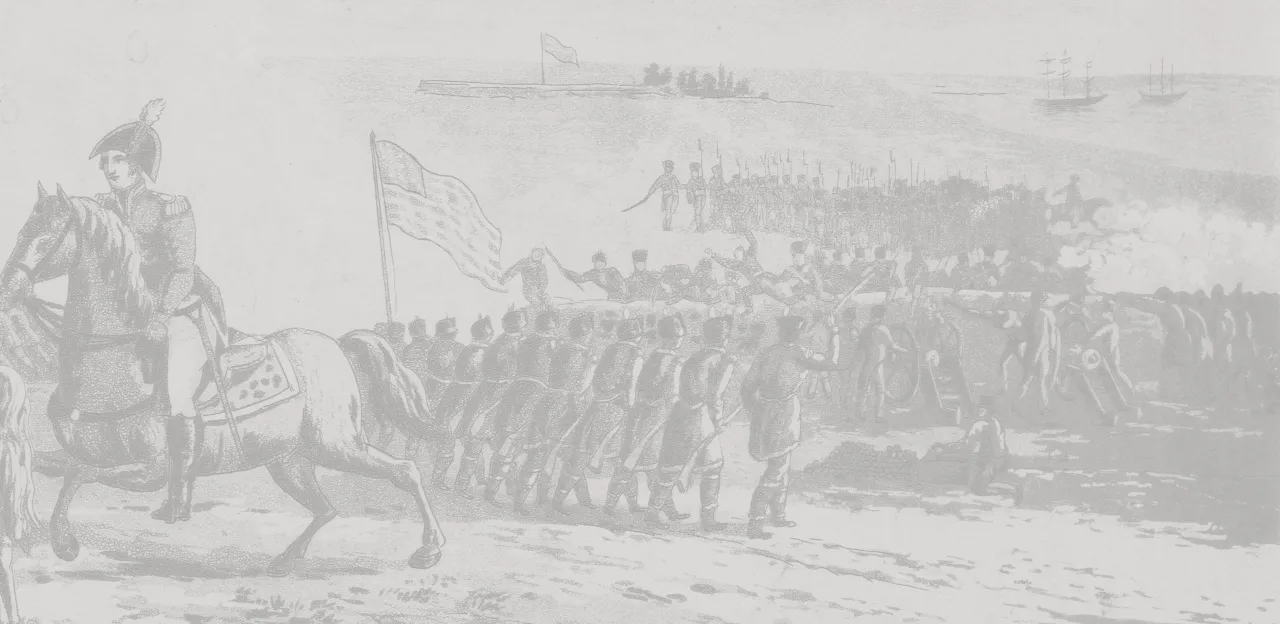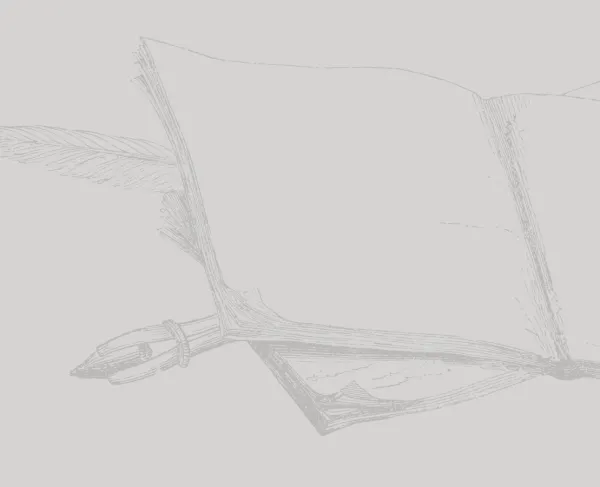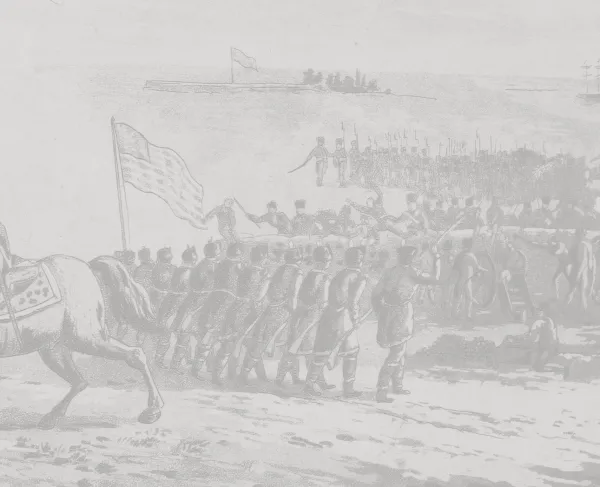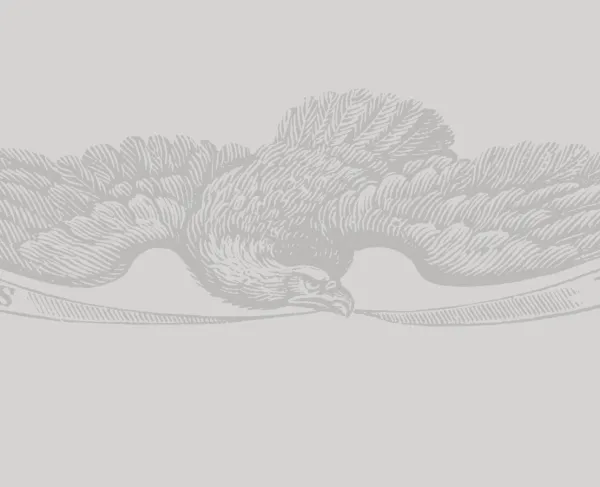War of 1812: "Undaunted we marched out"

Thomas Beacham volunteered for 90 days as a private in the 27th Maryland Regiment and fought at the Battle of North Point, defending Baltimore by land from British attack in September 1814. Three years later, Beacham moved to Ohio and spent the rest of his life as an ordained minister. In 1847, he wrote about his memories of defending Baltimore, and he lived until 1878.
Our spades and shovels were employed in throwing up breast-works – our guns were all put in order, and we then waited the approach of the enemy until Sabbath, the 11th of September. In the morning we performed military duty, we then went to the house of God, and from this we were called always before 12 o’clock. The balls of the Observatory [on Federal Hill] were run up – the alarm gun fire – the city was in commotion, weeping and lamentation were heard in almost every house: and yet, we found at our headquarters more men numbered than we had before. We took up our line of march, and encamped near the spot “where came the tug of war.” In the morning [Sept. 12], at sun rise, we formed a line, and then, for the first time, I heard those affecting words, “load with ball cartridges;” after which we marched about one mile, and drew up for battle….On the right we saw the 5th [Maryland] regiment and a few rifle companies, and on the left was the 39th and 51st regiments. Two or three companies, with one of the four little cannons, volunteered to go and hunt up the enemy, and they found them just in sight.
There a desperate battle ensued, every man did his best, and a young man by the name of Wells; belonging to the company of Sharpshooters, stopped the career of Ross. They now came on in earnest. In front was an extensive old field, and after filling this, they flanked our left. The three little six pounders (one having been spiked) commenced, and never were three little guns more constantly at work, not to better purpose, for the space of an hour.
The hardest of the battle was with the 27th, and the first musket was fired from that regiment. On my right, I saw the valiant young man, with trailed guns and quick step, advance forward at least 30 rods, while hundreds were calling, “come back!” “come back!” all to no purpose. He fired and this was the signal – in a moment the whole line was in a blaze. Brave boy, I doubt whether he ever returned to his home.
Our Adjutant, Donaldson, the beginning of a great man, had just passed in the rear, advising the men to shoot low. Hit them, said he, about the middle. We fought hard until a retreat was called for, and forty-two boys and two old men were killed in the company to which I belonged, (Captain Pinney’s.) We rallied again, with the 6th and other forces, about two miles from the city. We were now willing for another trial, but were soon ordered in front of the entrenchment. The 27th and 5th [regiments] were allowed to sleep at home that night, and the next morning, while rallying at headquarters, the sound of the first bomb saluted our ears.
Undaunted we marched out, and although thirty-three years have passed away, I have not forgotten the feeling caused by the loud cheer from the soldiers in the entrenchment, as the little 27th passed away to take our position in front. This day we were looking every moment for the onset which was to decide the fate of the city, but it came not. At night we drew nearer the entrenchment, and enjoyed all the comforts of a dark, rainy night, enlivened by the rocket’s blaze, and the dismal roar of the bomb. They had been at work all day and all night, and we could witness the truth of that patriotic sentiment, which a Baltimorean will always lobe and admire.
“The rockets’ red glare, the bombs bursting in air, Gave proof through the night that our flag was still there.”
In the morning we heard with astonishment, the enemy had fled to their ships… We mustered three months; sometimes walking as sentinels at the six gun battery. Our city was kept in peace and safety; some said the Lord would keep it so, and so he did. Baltimore was then almost as distinguished for soldiers of the cross of Christ as soldiers of the musket. I have never seen any history of the battle of North Point; these few particulars are from memory, and in the main are true. My home is in the west, yet I love Baltimore still.
Source:
The Battle of Patapsco Neck, Sept. 1814: Reminiscences (Unpublished; accessed through Maryland in the War of 1812).
Related Battles
213
291





